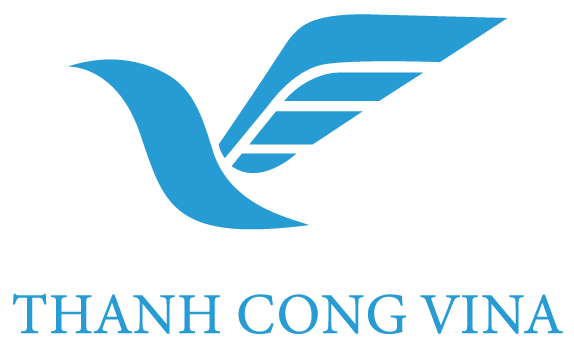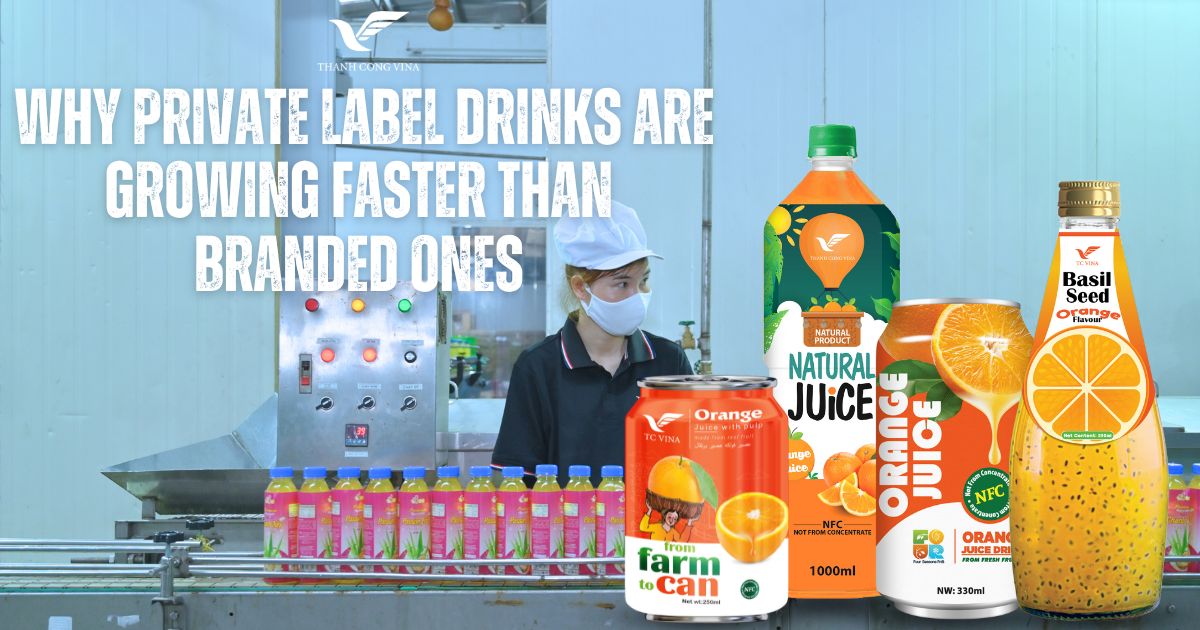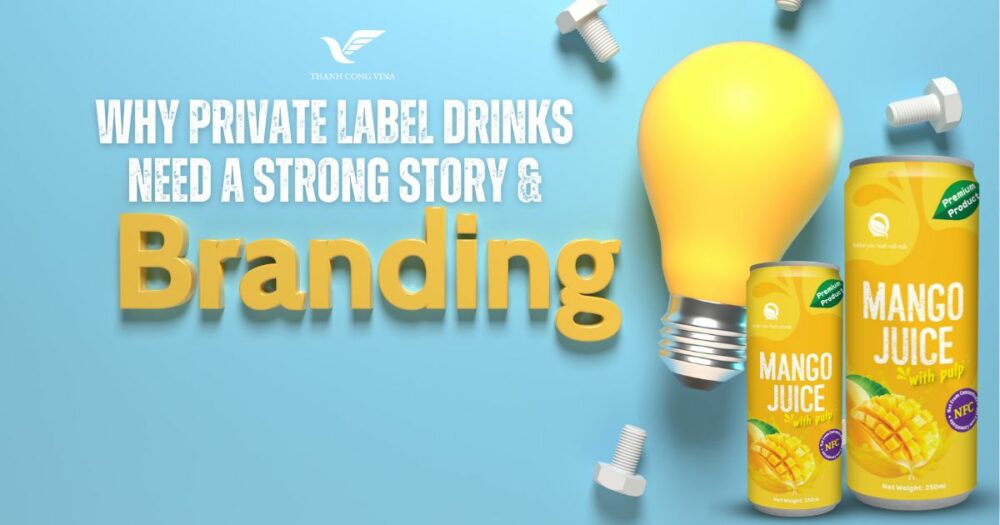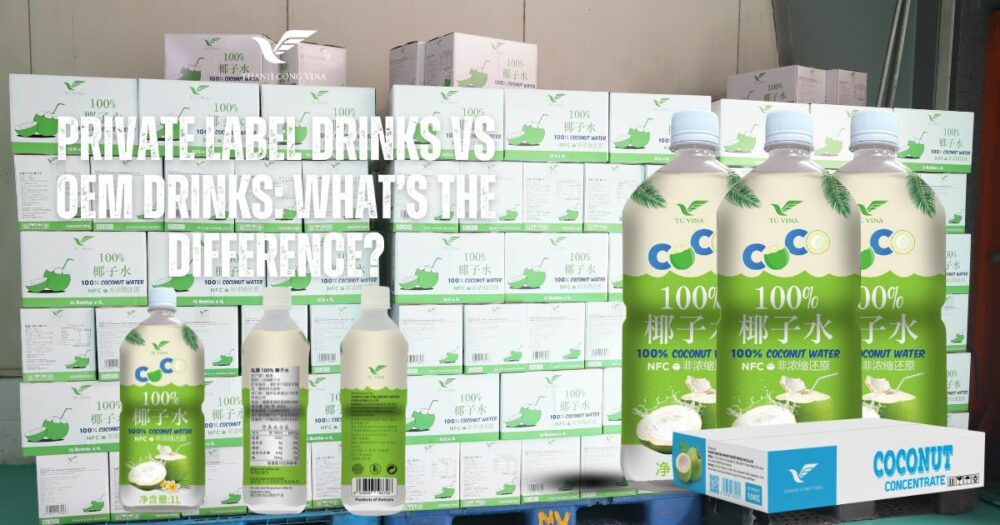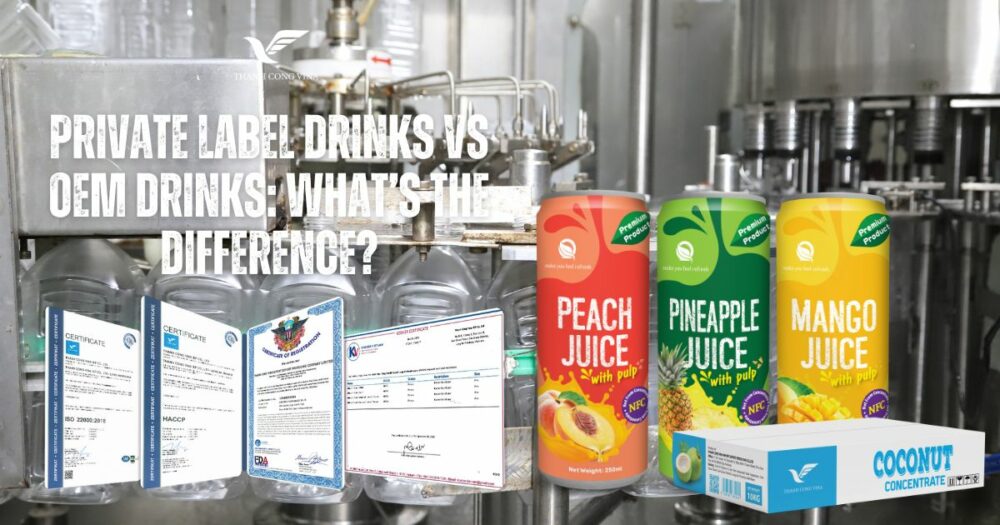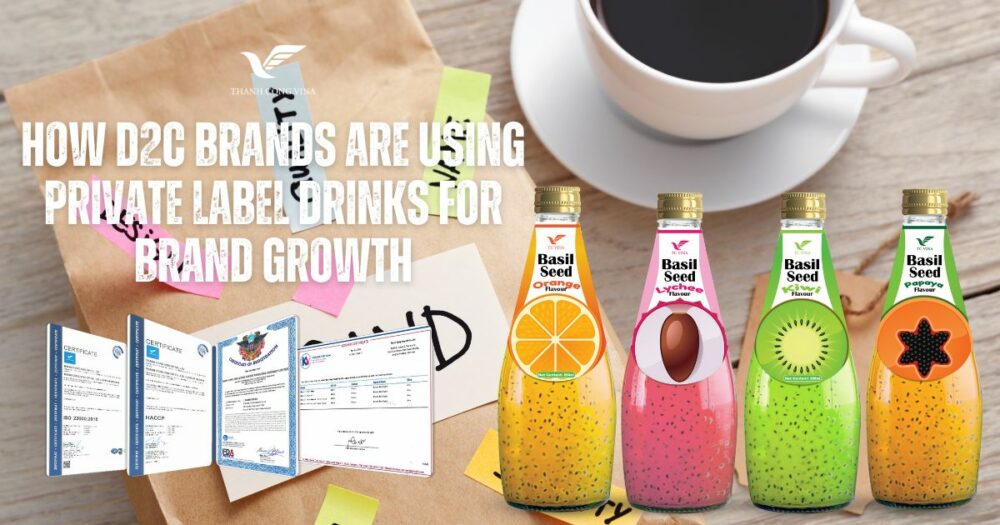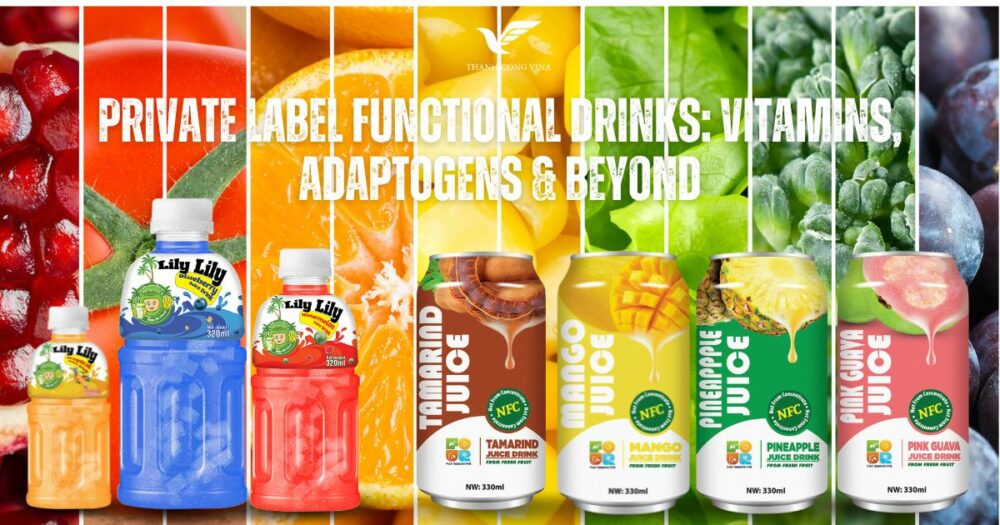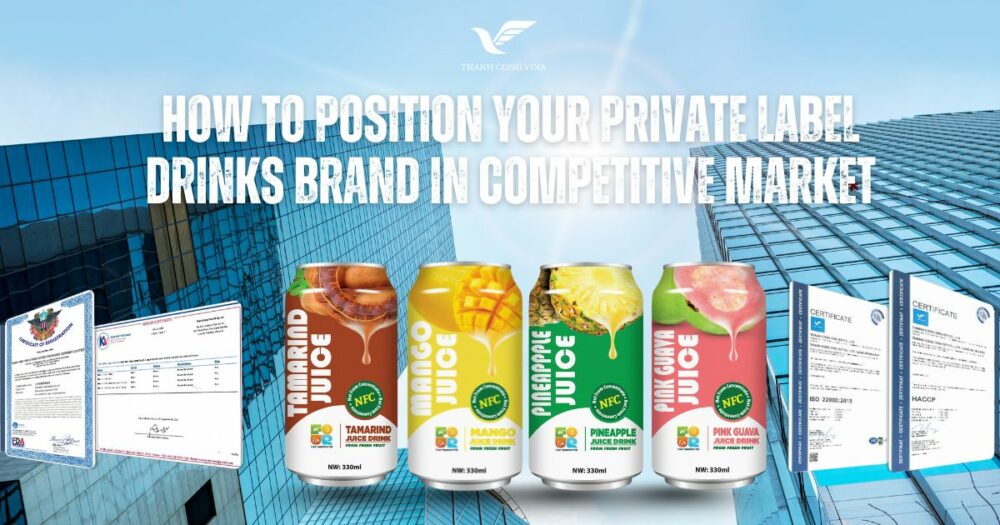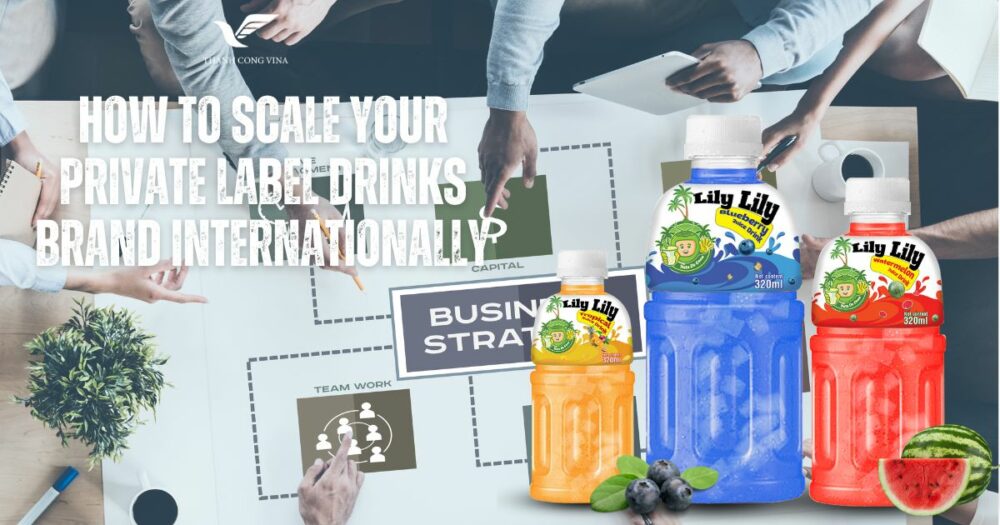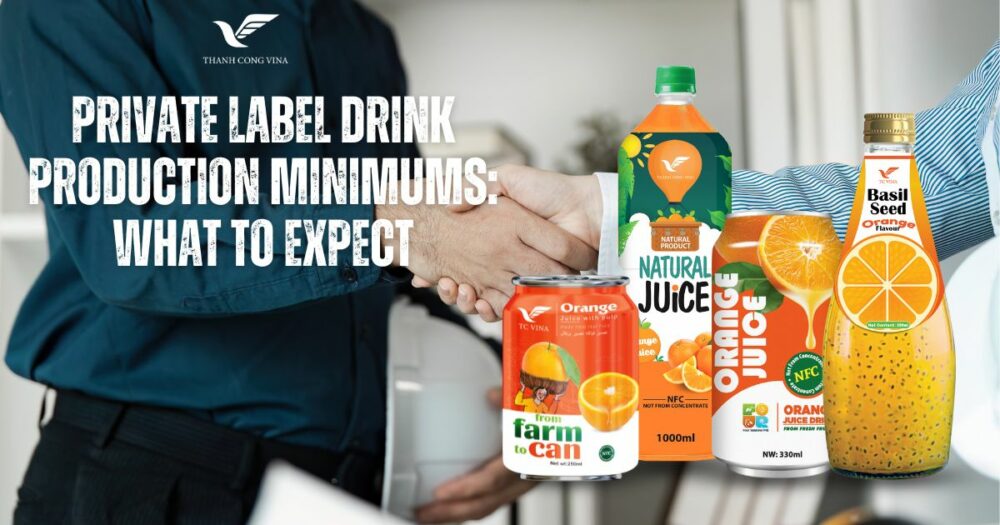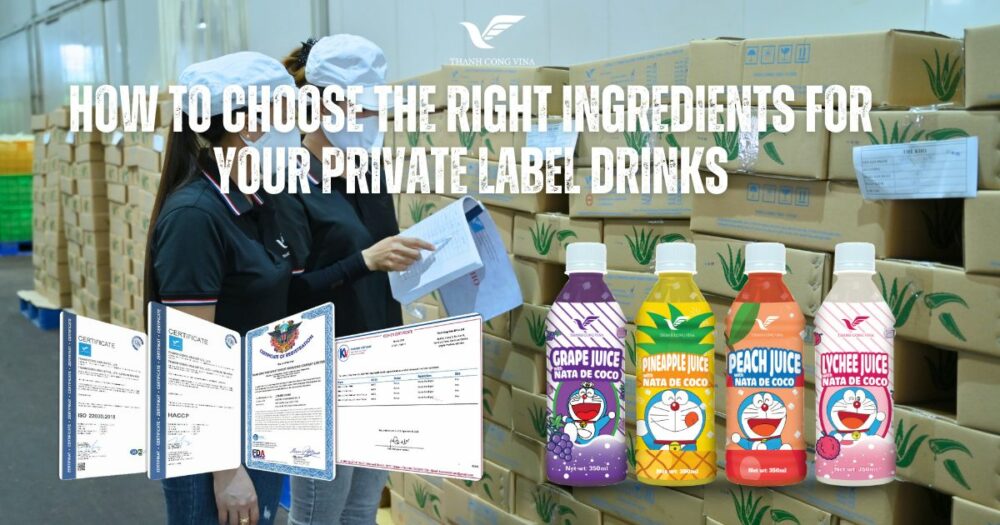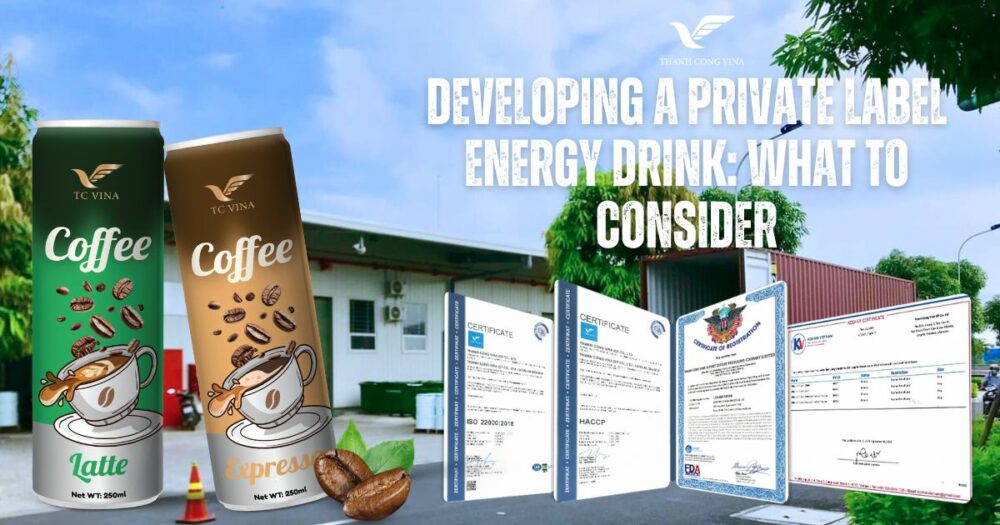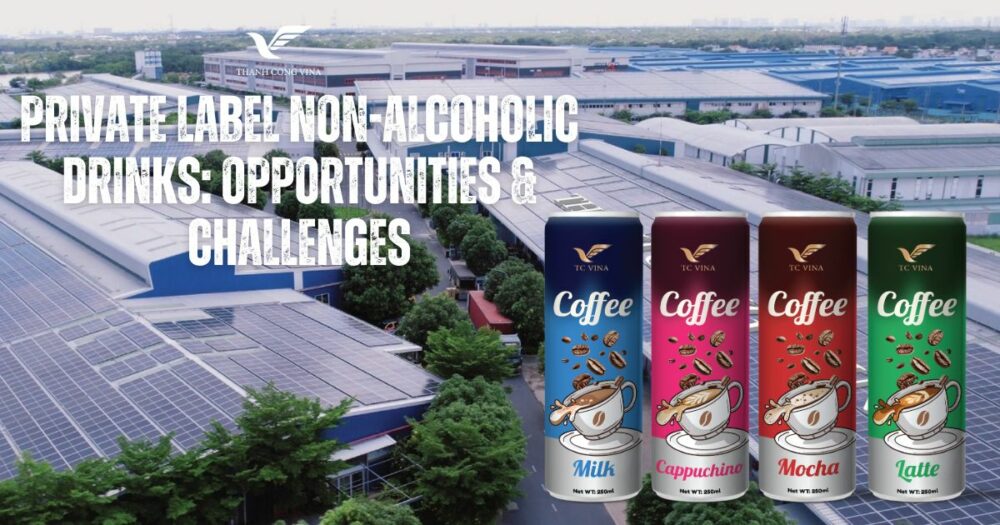In recent years, the global beverage market has witnessed a significant shift toward Private Label Drinks. Once perceived as budget alternatives, private label beverages are now gaining recognition for their quality, innovation, and value. Retailers, supermarkets, and distributors are investing heavily in their own beverage lines—from fruit juices and sparkling waters to energy and functional drinks.
This transformation is not only reshaping consumer preferences but also redefining competition in the beverage industry. As production technologies advance and consumer trust in store brands grows, private label drinks are emerging as powerful rivals to established branded products. In this article, we’ll explore the factors driving the rapid growth of private label beverages, their benefits for both consumers and businesses, and what makes them a strategic choice for beverage companies and retailers worldwide.
1. Understanding Private Label Drinks
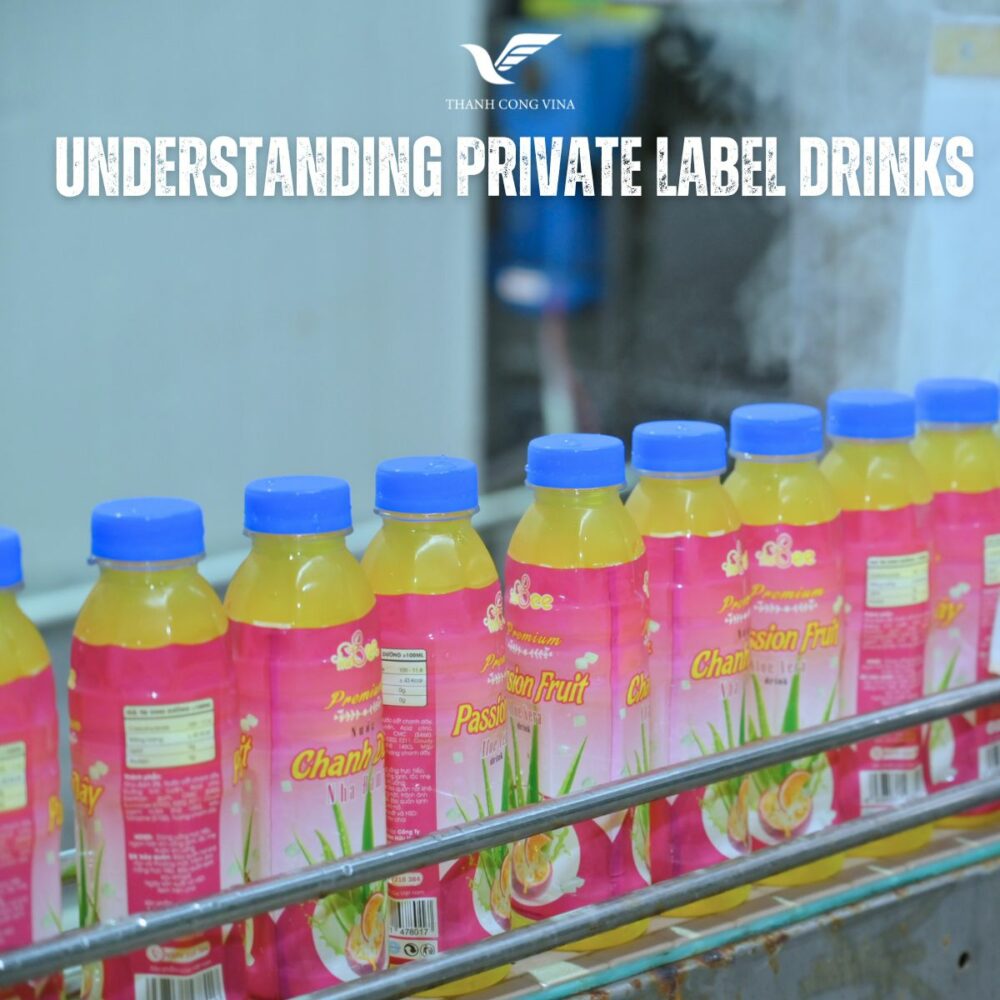
Understanding Private Label Drinks
Private label drinks are beverages produced by a third-party manufacturer and sold under a retailer’s or distributor’s brand name. These products are typically designed to match or exceed the quality of well-known brands but are offered at more competitive prices. Retailers like supermarkets, convenience chains, and online stores often use private label beverages to build loyalty and increase margins.
How They Differ from Branded Drinks
Branded drinks are owned, marketed, and distributed by the company that manufactures them. In contrast, private label drinks rely on OEM (Original Equipment Manufacturer) or contract beverage producers. The retailer provides branding, packaging, and positioning, while the manufacturer handles formulation, production, and quality control.
The Rise of Beverage OEM Partnerships
Private label growth is closely tied to the evolution of the OEM beverage industry. With modern facilities and certifications such as HACCP, ISO, and GMP, OEM manufacturers can now produce premium beverages that meet international standards—making private label drinks a viable and attractive option for many businesses.
2. Market Growth and Global Trends
Accelerating Market Share
According to recent beverage market reports, private label drinks now account for over 30% of total beverage sales in several European countries and are rapidly growing in Asia and North America. Consumers increasingly perceive private label beverages as equal or superior to branded ones, leading to consistent year-over-year growth.
Economic Factors Driving Expansion
The rising cost of living and inflation have prompted consumers to seek affordable yet high-quality options. Retailers have capitalized on this shift by offering competitively priced private label drinks without compromising taste or nutritional value.
Evolving Consumer Perceptions
In the past, private label products were often associated with lower quality. However, modern consumers—especially Millennials and Gen Z—prioritize transparency, ingredients, and sustainability over brand prestige. Private label drinks often highlight clean labels, natural flavors, and eco-friendly packaging, resonating with health-conscious buyers.
Retailers’ Strategic Move
Retailers are investing in R&D, innovative packaging, and co-branding partnerships to strengthen their product lines. Many large retailers now collaborate with top-tier OEM beverage manufacturers to ensure their private label drinks meet or exceed branded alternatives in both flavor and functionality.
3. The Benefits of Private Label Drinks for Retailers
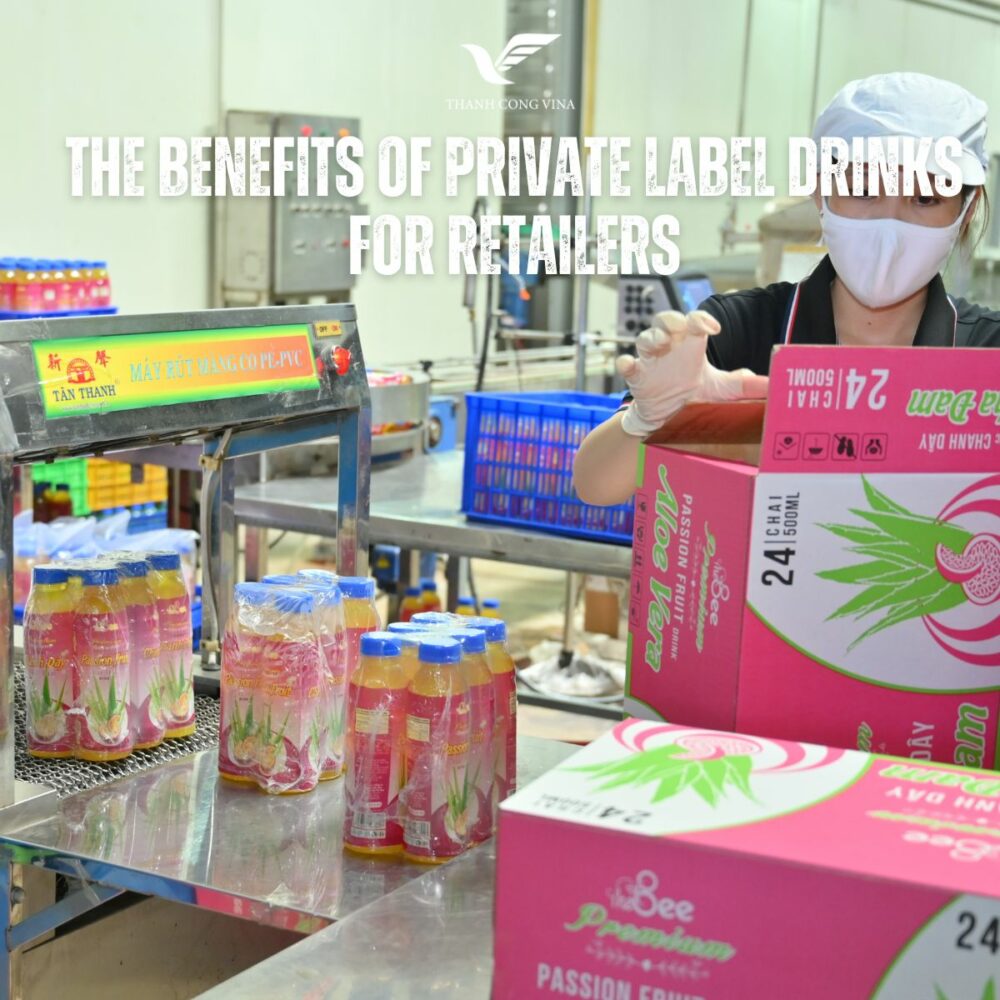
The Benefits of Private Label Drinks for Retailers
Higher Profit Margins
By cutting out middlemen and working directly with OEM beverage manufacturers, retailers can achieve significantly higher profit margins. They control product pricing, distribution, and marketing—allowing better flexibility in adjusting to market trends.
Brand Exclusivity
Private label drinks give retailers exclusive ownership of their beverage lines. Unlike branded products available in multiple outlets, private label beverages can only be purchased from a specific store, enhancing customer loyalty and differentiation.
Quick Market Adaptation
Private label products can be launched or modified faster than branded ones. Retailers can swiftly respond to emerging trends—such as sugar-free drinks, plant-based ingredients, or functional beverages—without waiting for major corporations to act.
Control Over Product Quality
Working closely with experienced OEM partners enables retailers to set precise quality and safety standards. Certified manufacturers can customize formulas, packaging materials, and flavor profiles to meet the retailer’s expectations and regional preferences.
4. Why Consumers Prefer Private Label Drinks
Value for Money
Private label drinks typically cost 10–30% less than branded equivalents. Consumers get the same taste, quality, and nutritional benefits without paying for expensive brand marketing or celebrity endorsements.
Transparency and Ingredient Quality
Today’s shoppers pay close attention to ingredient labels and nutritional information. Retailers offering private label beverages often promote transparency and clean-label claims—such as “no preservatives,” “organic ingredients,” or “natural flavors.”
Sustainability and Local Sourcing
Many private label drinks emphasize local sourcing, recyclable packaging, and eco-conscious production. This appeals to environmentally aware consumers seeking brands aligned with their values.
Trust Built Through Consistency
As private label beverages maintain consistent flavor, quality, and availability, customers develop long-term trust. Over time, this reliability encourages repeat purchases and enhances brand loyalty—especially when backed by a reputable retailer.
5. The Role of OEM Beverage Manufacturers in Private Label Success
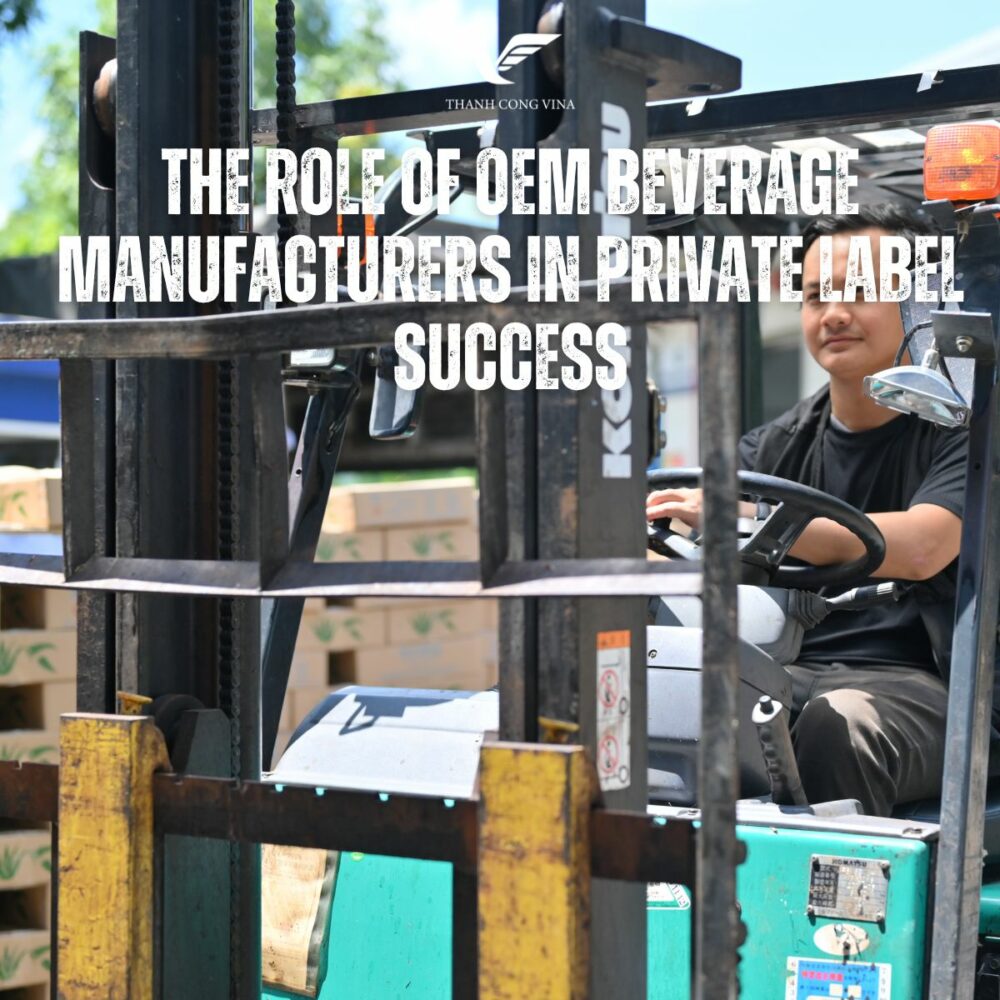
The Role of OEM Beverage Manufacturers in Private Label Success
From Concept to Production
OEM beverage manufacturers play a crucial role in turning a retailer’s concept into reality. They handle every stage—from research and development to sourcing, mixing, bottling, labeling, and packaging.
Advanced Technology and Quality Control
Modern OEM beverage facilities use state-of-the-art equipment for blending, pasteurization, and aseptic filling. Quality control teams monitor every batch, ensuring compliance with global food safety standards.
Custom Formulations and Flexibility
Retailers can request tailored recipes, flavor combinations, or functional ingredients—such as aloe vera, vitamin C, collagen, or electrolytes—to target specific consumer demographics. OEM beverage partners make this customization efficient and cost-effective.
Global Certifications
Top OEM partners are certified with HACCP, ISO 22000, GMP, HALAL, and FDA approvals. These certifications ensure product safety and open access to international markets for private label beverage brands.
6. Innovation and Future Trends in Private Label Drinks
Functional Beverages on the Rise
Private label brands are entering the premium segment by launching functional drinks that support health goals—such as energy boosters, detox drinks, probiotic beverages, and plant-based protein shakes. This trend is reshaping consumer expectations of retailer-owned beverages.
Technology-Driven Production
Automation, data tracking, and AI-based quality control systems are revolutionizing beverage manufacturing. These advancements allow OEM producers to deliver consistent quality while reducing costs and environmental impact.
Expansion into Niche Categories
Private label beverages are branching out into niche markets—such as low-calorie waters, organic smoothies, and carbonated juices. Retailers are also experimenting with limited-edition seasonal flavors to create excitement and exclusivity.
Sustainability as a Core Strategy
Sustainability is no longer optional. Private label brands that integrate recyclable packaging, reduced plastic use, and responsible sourcing will dominate the next generation of beverage consumers.
7. Comparing Private Label vs. Branded Beverage Strategies

Comparing Private Label vs. Branded Beverage Strategies
Marketing Focus
Branded beverages invest heavily in advertising, sponsorships, and global campaigns. Private label drinks, on the other hand, rely on product quality and retailer reputation rather than large-scale marketing budgets.
Product Innovation Speed
Private label drinks can enter new segments faster since decision-making is streamlined. Retailers can directly approve new flavors or packaging innovations without corporate bureaucracy.
Profit and Pricing Strategy
Private label beverages allow retailers to maintain competitive prices while achieving higher profit margins. Branded products often face pressure from marketing expenses and distribution costs.
Consumer Trust Evolution
The gap between brand loyalty and product trust is shrinking. Consumers now value transparency, affordability, and local quality—areas where private label drinks have a growing advantage.
8. How to Build a Successful Private Label Beverage Line
Partner with the Right OEM Beverage Manufacturer
Selecting a reliable OEM partner is the cornerstone of success. Choose manufacturers with strong experience, certifications, and proven expertise in beverage formulation and export.
Define Your Market and Product Strategy
Identify your target audience—health-conscious adults, young consumers, or premium shoppers—and tailor flavors, packaging, and marketing accordingly.
Focus on Branding and Design
Even though private label products are retailer-owned, branding still matters. Modern packaging, appealing color schemes, and clear nutritional information attract attention and build trust.
Ensure Compliance and Quality Assurance
Working with an OEM manufacturer that follows international standards ensures your private label drinks meet all legal, health, and safety requirements for domestic and global markets.
Conclusion
The rise of Private Label Drinks represents a major evolution in the global beverage industry. Retailers and beverage companies are realizing that high-quality, affordable, and sustainable private label beverages can outperform traditional branded products in both profitability and consumer loyalty.
With advanced production capabilities and trusted OEM partnerships, private label drinks are no longer just alternatives—they are leaders in innovation and market responsiveness. For businesses seeking an expert OEM beverage partner, Thanh Cong Vina stands out as a premier manufacturer offering comprehensive solutions from formulation to export.
With certifications in HACCP, ISO, and HALAL, and extensive experience producing natural fruit juices and functional beverages, TCVina empowers brands to bring their beverage visions to life with quality and confidence. Choosing the right partner today means building the beverage brand of tomorrow.
